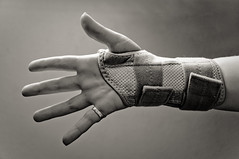Worker’s compensation acts as an insurance program, and as such, most states’ worker’s compensation programs are underwritten by private insurance companies. When an accident happens, the state fund has to pay out money, which means the insurance company has to pay out money. As a result, the insurance company that is backing the state plan may try to act in bad faith, meaning it will skew the facts of the injury case or even outright lie in order to save money. Our Arizona workers compensation lawyer suggests that this situation can happen even when you know your case is legitimate, so it’s important to stay wary.
Insurance Bad Faith Cases
When an insurance company acts in bad faith, it is typically violating the terms of a policy that it has with a company or individual, and this typically results in the company disputing injury claim payouts or even delaying the process. While this goes on, a legitimately injured worker may be missing work while recuperating at home or in a hospital, and all the while, bills are mounting.
Legal Options
Unfortunately, because of the size of these types of cases and the resources possessed by most large insurance companies, insurance bad faith cases can be very difficult to face on your own. Such insurance companies will often employ intimidating lawyers who have one singular purpose: to keep you from getting the compensation you deserve. As mentioned, this may be done by disputing your claim or by delaying the claims process. Even if you are able to push past these difficulties, you will also have to deal with the courtroom process, and if you have no legal training, this alone can be a roadblock to the compensation you deserve.
Is There a Better Way?
If you’ve found yourself injured on the job and you’re unable to get timely results from your worker’s compensation program, you may need to turn to the services of an insurance bad faith lawyer, otherwise known as a worker’s compensation lawyer. These legal professionals can get in between you and the insurance company to seek a resolution, and if need be, they can also represent you in court to get the compensation you deserve for your workplace injuries. In addition, an insurance bad faith attorney will be able to investigate all aspects of your case, meaning you won’t have to spend valuable time and resources tracking down every last detail relating to your injuries.
With that said, it’s important for you to remember that if you’re involved in a workplace accident, you should try to document everything as soon as possible. From what happened to who was present, details regarding your accident can become very important when you and your attorney prove your case in court, especially when going up against an insurance company that isn’t playing by the rules. If possible, try to take photographic or video evidence of the scene of your accident, and write down an account of the accident as soon as possible. This evidence should then be copied, and the originals should be placed into a secure storage location for future use in your case.

